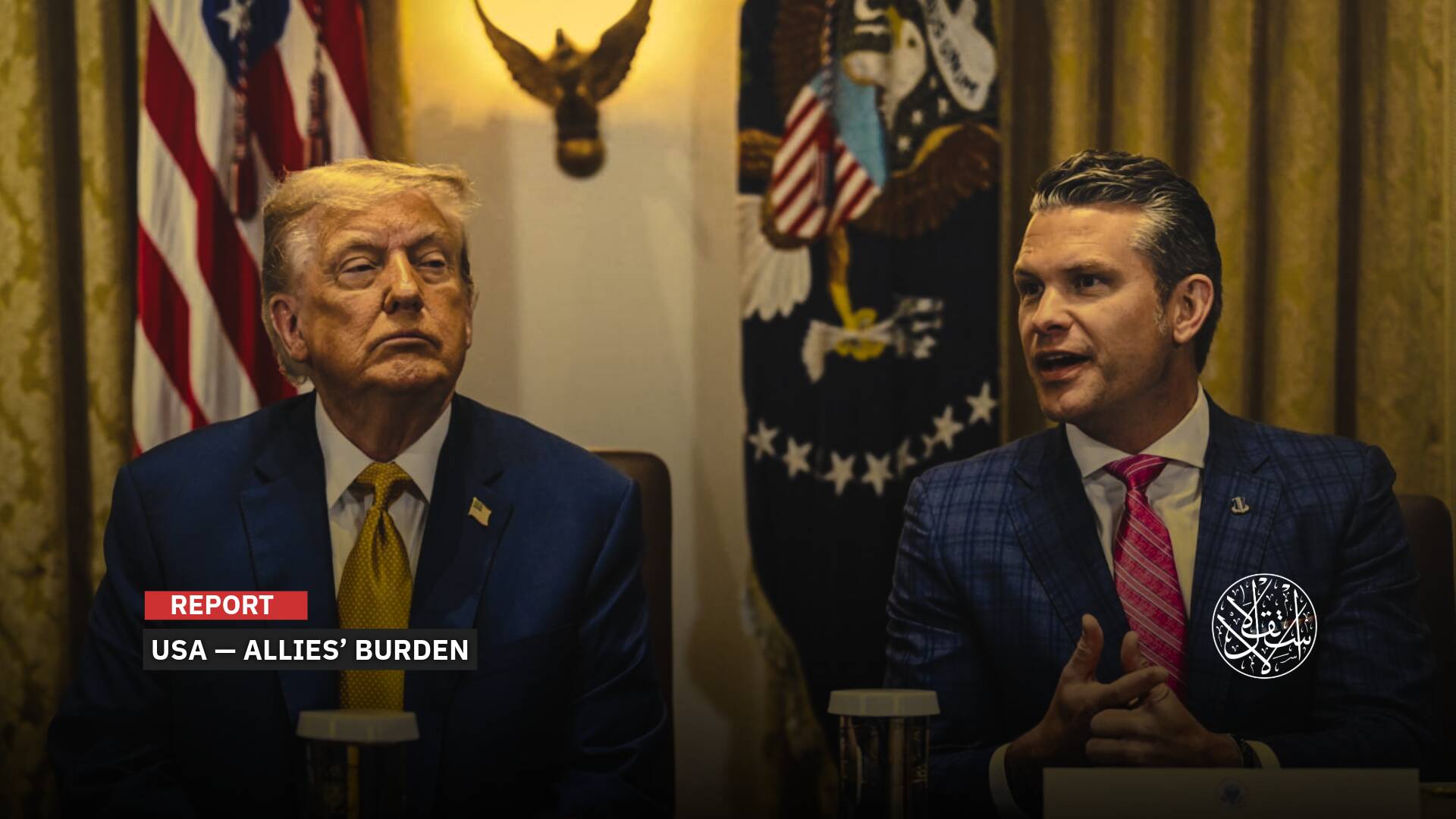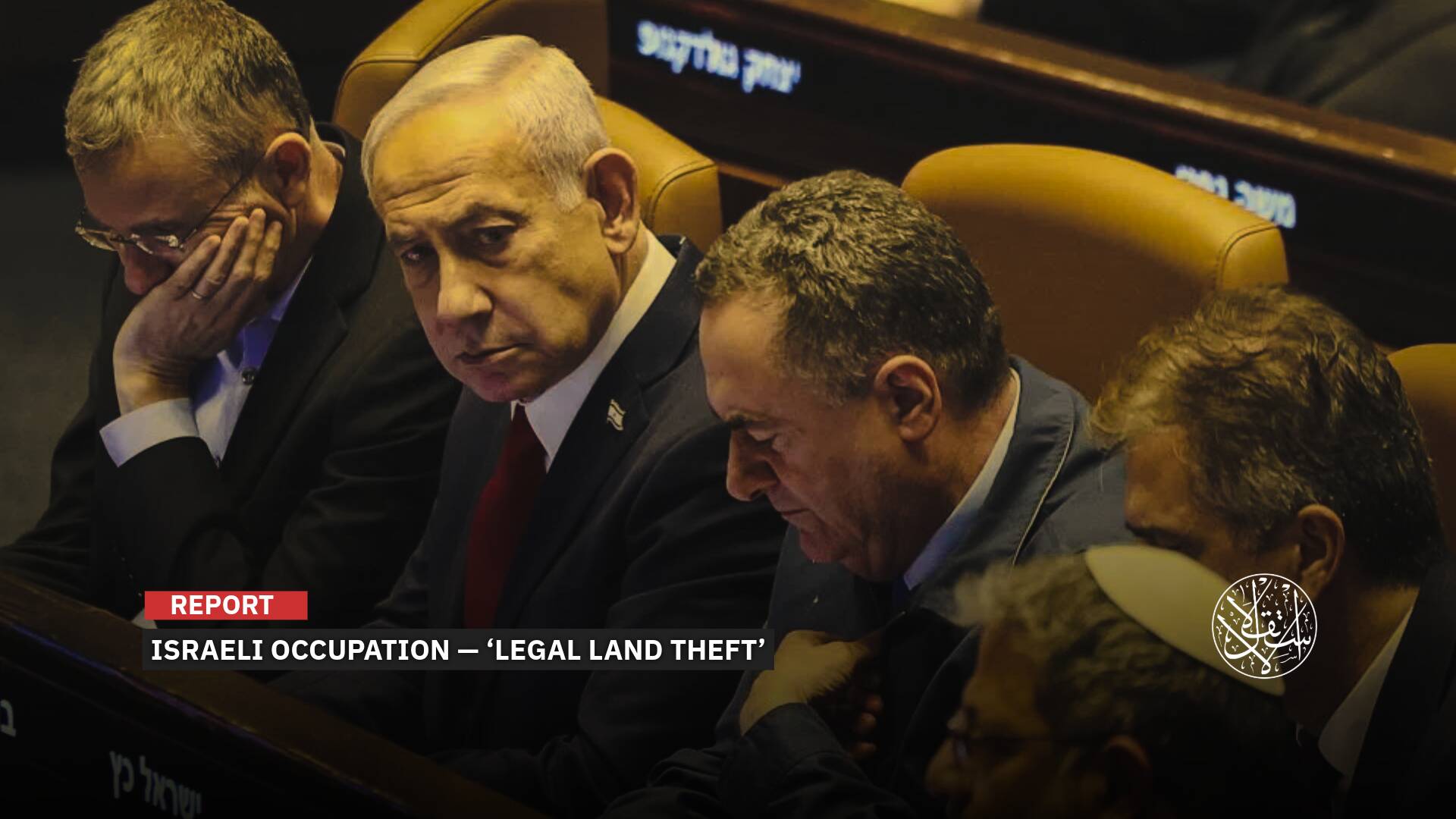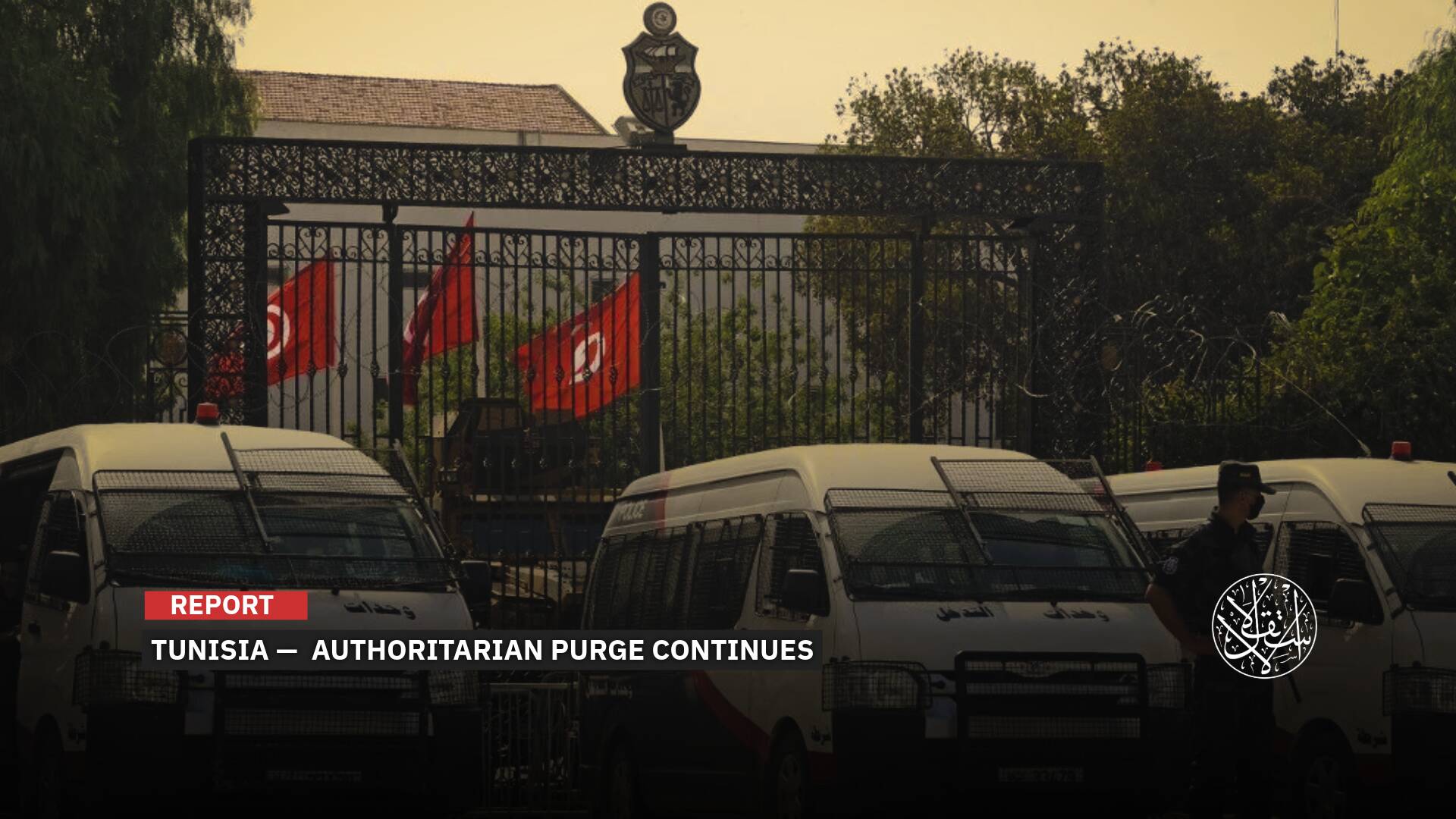'Kila Shlomo': A Civilian Lobby for the Israeli Army Within the US Congress.

In a comprehensive report published by The Guardian, it was revealed that Israeli Minister for Social Equality, Amichai Chikli, spearheaded a concerted effort aimed at critics of the Israeli Occupation in the U.S.
The campaign, backed by evidence, centers around the relaunch of a contentious entity as part of a broader public relations strategy targeting American universities and redefining anti-Semitism within U.S. law.
The focal point of this operation is the enigmatic “Kela Shlomo” (also known as “Shlomo’s Slingshot”) company or association. Designed to execute what Israel terms “public awareness activities,” Kela Shlomo primarily directs its efforts toward the United States and Europe.
'Kela Shlomo'
Initially, this endeavor operated under different names: Kela Shlomo, then Concert, and later rebranded as Voices of Israel. Its mission? To counter what it perceived as a rising tide of anti-Israel sentiment in the United States.
According to the Times of Israel, Kela Shlomo functions as a public benefit corporation established in 2017.
Its purpose is to raise and allocate funds for safeguarding the Israeli occupation against those who seek to “demonize and delegitimize” the nation.
In November, Chikli, a prominent figure in the Likud party, addressed the Israeli parliament (Knesset) to address mounting hostility toward “Israel”.
Specifically, he confronted protests by young Americans, particularly at elite universities, who opposed the war.
Since then, Chikli has led a vigorous campaign against the Israeli occupation’s critics.
The Guardian’s investigation uncovered evidence of Israel’s revival of the controversial Concert entity—a move strategically aligned with broader PR efforts aimed at universities and the redefinition of anti-Semitism.
Chikli assured lawmakers that additional funds were allocated for this distinct deterrence campaign, separate from the government’s traditional public relations and paid advertising initiatives.
The multifaceted campaign includes 80 programs, all executed with concert-like precision.
Voices of Israel, formerly known as Concert, previously collaborated with groups spearheading the “anti-BDS campaign.”
Their goal is to pass legislation in every U.S. state penalizing Americans participating in boycotts or nonviolent protests against Israel.
These recent developments form part of a “hard-line and covert” operation by the Israeli government—a response to student protests, human rights organizations, and other dissenting voices.
From October to May, Shikli oversaw the allocation of at least 32 million shekels (approximately $8.6 million) toward reshaping the public discourse and promoting the Israeli narrative.

Mass Influence
Tariq Bodyafa, a Palestinian political researcher, sheds light on this shadowy organization. According to Bodyafa, “Kela Shlomo” dons the cloak of a civilian entity while effectively representing the Israeli government.
“Kela Shlomo aims to counter the delegitimization of the Israeli occupation and confront the Boycott, Divestment, and Sanctions (BDS) movement,” Bodyafa told Al-Estiklal.
The strategy of Kale Shlomo cunningly devised. By operating as a civilian entity, “Kela Shlomo” sidestepped legal constraints that would have hindered its American donations had it been officially recognized as a government-affiliated body.
Moreover, there was a calculated belief that ordinary citizens—rather than government officials—could wield greater influence in shaping public opinion, especially in Western circles, according to Bodyafa.
Documents from Israeli human rights centers reveal that “Kela Shlomo” failed to secure the necessary funding.
Despite ambitious goals, including raising 128 million shekels through foreign donations, the association fell short.
Notably, “Kela Shlomo” received a lifeline—a 7.3 million shekel donation—from the Central Fund of Israel, an American organization known for supporting right-wing associations and causes within Israel.
The story of “Kela Shlomo” serves as a cautionary tale, revealing the delicate dance between government agendas, public perception, and the power of ordinary citizens in shaping narratives on the global stage.

Lobbying Playbook
Kela Shlomo has emerged as a central player since October 7. Its role, meticulously documented through data and investigations, revolves around amplifying the false Israeli narrative—a narrative that has reverberated across digital platforms, casting Palestinians and Hamas as perpetrators of heinous crimes, including sexual offenses and child killings.
But this orchestrated campaign extends beyond mere propaganda. It targets dissenting voices worldwide, particularly in the United States and Europe, where opposition to the Israeli occupation’s policies and aggression on Gaza has gained traction.
Kela Shlomo’s smear tactics have ensnared political figures, university campuses, and even social media channels.
The playbook involves leveraging civil platforms, where vast sums of money purchase fake accounts and trusted profiles.
These proxies then disseminate misleading messages, carefully crafted to legitimize Israel’s actions in the Gaza Strip.
The goal is to counter delegitimization efforts and quash opposition to Israel’s controversial policies.
Voices of Israel, operating through American advocacy groups, has wielded significant influence. The Institute for the Study of Global Antisemitism and Policy (ISGAP), closely aligned with Chikli’s ministry, achieved remarkable victories.
At a recent congressional hearing, ISGAP research informed Republican lawmakers’ pointed questions to university presidents, framing anti-Israel protests as manifestations of anti-Semitism.
But the web extends further. The National Council for Black Empowerment, another voice of Israel affiliate, rallied black Democratic politicians to pledge solidarity with Israel.
Meanwhile, CyberWell—a pro-Israel “anti-disinformation” group led by former Israeli military intelligence officials—has ingratiated itself with TikTok and Meta, curating content and suppressing slogans like “From the river to the sea, Palestine will be free.”
Yet, revelations from Haaretz and The New York Times unmask a deeper layer: Chikli’s ministry covertly lobbied American lawmakers, deploying hundreds of fake accounts across platforms like X, Facebook, and Instagram.
The battle for narrative supremacy rages on, leaving truth obscured in the digital world.












